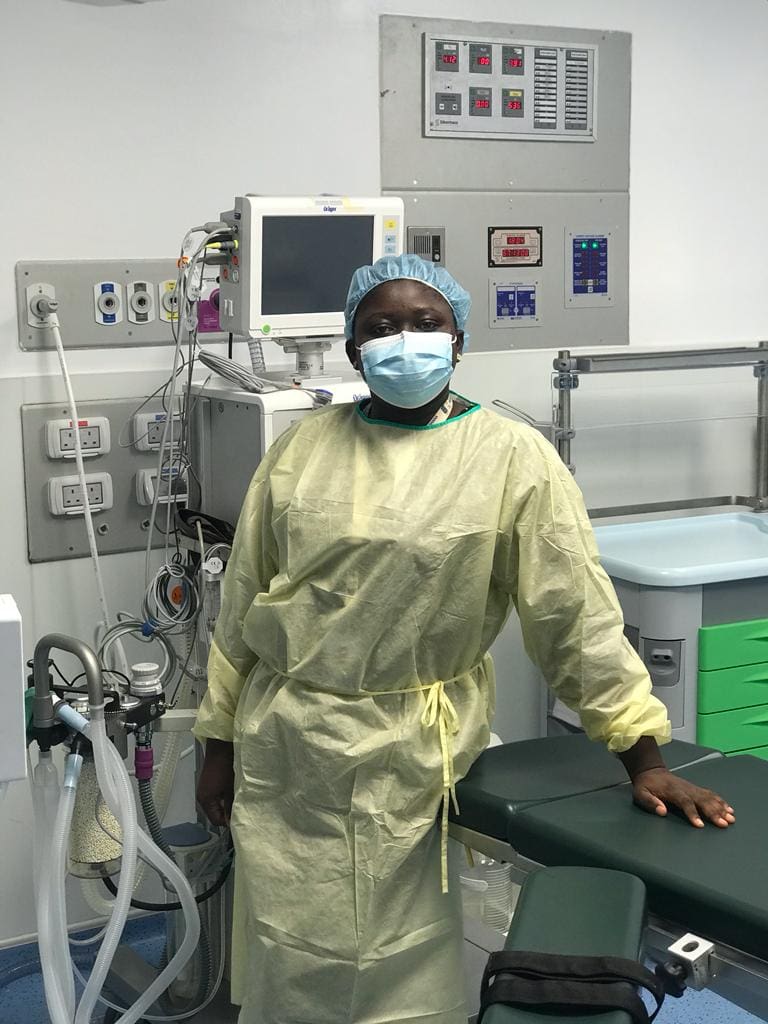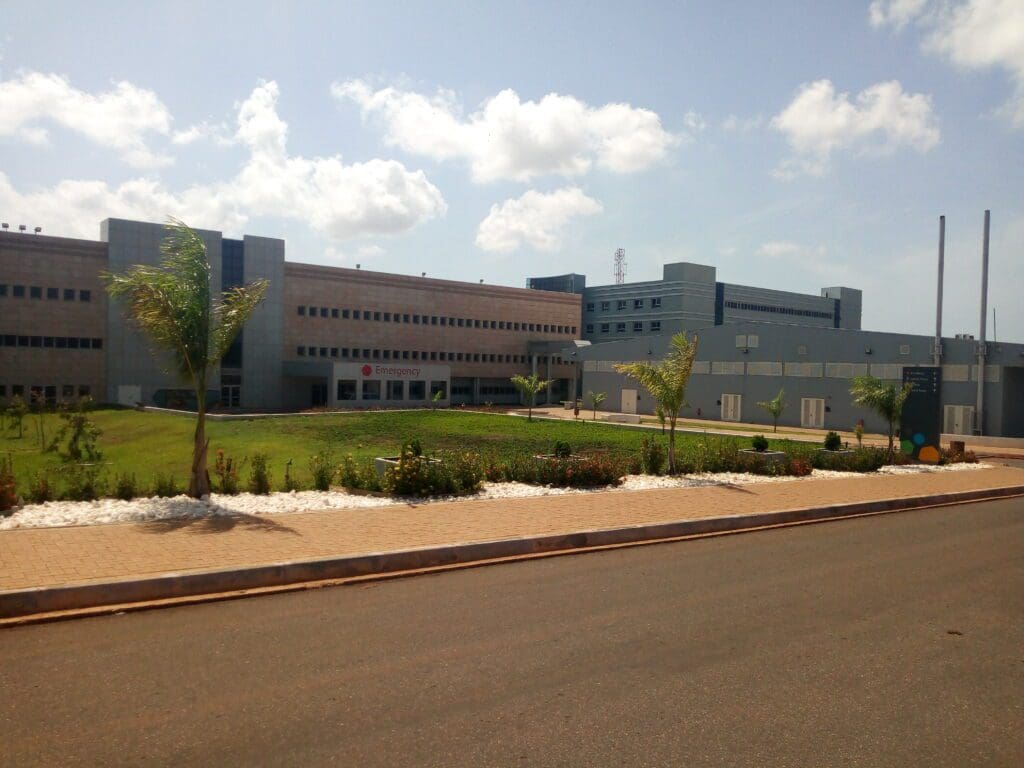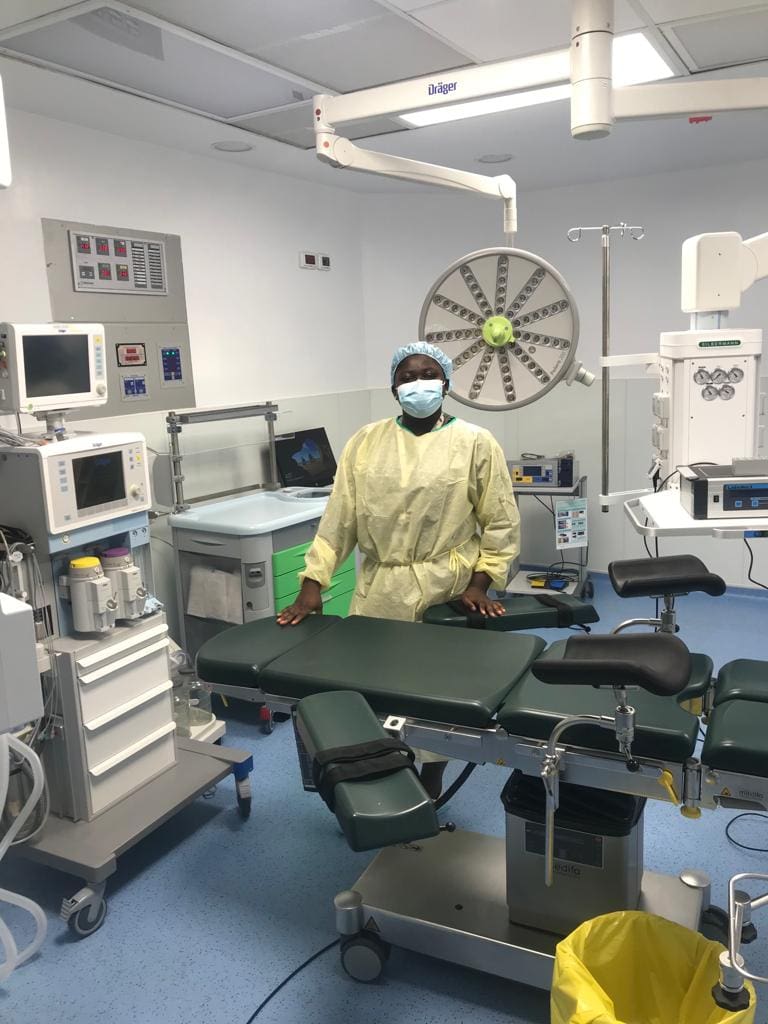How to successfully mentor Biomedical Engineers in a hospital
Beatrice Yeboah looks after and is a mentor for Biomedical Engineers at the University of Ghana Medical Centre. She is also a youth mentor for women working in male dominated TVET institutions.
A Senior Clinical Engineering Manager supporting Biomedical Engineers


The road to Biomedical Engineering
Could you give a brief description of your background and what led you to study medical engineering?
I got to know about Biomedical Engineering through my Technical Tutor in Junior High School. That was because he knew someone who was doing this course and mentioned this to me. I thought it was quite an interesting bridge between Medicine and Physics. He encouraged me to pursue Science with Physics and Further mathematics as electives in Senior High School.
However, as is the norm in most Ghanaian homes, I was also encouraged to take up a career within the medical field. The reason for this encouragement is that it is then easy for me to gain employment.
Were there any childhood interests which were a factor?
My dad was into building construction, so growing up, I was always around Engineers. I took particular interest when the Electrical Engineers worked on complex and sophisticated systems for various projects.
Has there been a particular person who has inspired you?
Aside from my Tutor, an Electrical Engineer I met on one of my numerous visits to various project sites with my dad encouraged me to pursue Engineering in the Tertiary institution.
How do you stay up to date as technology has changed since you started your career?
In the course of my career, I have realised that attending various seminars, conferences and workshops on new and emerging technology has aided me to be up to date with current technology trends. I subscribe to various newsletters and journals which also help me be up to date with current trends.


Typical Day as a manager and mentor of Biomedical Engineers


What’s your typical day like?
At the beginning of every week, I normally have targets or goals I want to reach for each department under my supervision. So, I go through those targets with my team members. I then prepare the necessary documentation or get the right tools to aid in achieving the goals.
How much of your time is spent ‘hands on’ and how much managing and team leading? Which other people in the workplace give you support?
So typically, I go on the ward runs with my team members which normally comprise of National Service Personnel and Interns. We make sure every machine in the units is functional and ready to use. If there is any immediate Corrective Maintenance to do, we will make an arrangement to have it done as soon as possible. As well, if there is any PPM (Planned Preventive Maintenance) due on any of the medical equipment we carry it out.
I also do user training for end users on a quarterly basis or when the need arises.
What exactly do your team service in terms of machines and devices?
Planned Preventive Maintenance involves replacing filters, rings, or other worn-out parts of any equipment. We also recalibrate equipment which is not giving accurate or consistent results.
Children’s wards
What are the extra challenges when working in the children’s department?
There are high chances of the kids playing with or fidgeting with the medical equipment, causing regular breakages. With cooperation from the Nurses and Staff in the Children’s department, we have been able to minimise breakages to most of the medical equipment.
Challenges of your role managing and mentoring Biomedical Engineers
What is the most challenging part of your job – technical side, people management or dealing with other parts of the organisation?
The most difficult is the technical side, mostly securing replacement parts. Obtaining technical support from manufacturers when the equipment malfunctions is also an issue.
How do you explain technical issues to non-technical people?
Mostly in simple terms. I will first explain which part of the equipment is faulty, whether the parts are to be replaced immediately or not and how long it might take to get it fixed.
What is the most difficult equipment repair you have ever dealt with?
The most difficult one was on a donated patient monitor. The board was poorly built, making it difficult to get parts to get it functional.
Being a Youth Mentor
You are a Youth Mentor for World University Service of Canada (WUSC – EUMC), what does this entail?
I work as a Mentor for the WUSC-EUMC INVEST IN HER project. My main role is that I mentor women in male dominated TVET institutions. I have regular scheduled sessions with everyone in my team each week. In these sessions, I provide them with guidance and support on their career path. I also give talks to females in male dominated TVET institutions.
Work life balance
How do you balance working, volunteering, and having time for family and friends?
It is quite difficult, I have to always plan ahead, making advance arrangements to hang out with friends. With family, I have the policy of not bringing work home. So, I focus on them solely when I come home from my workplace.
Leading, managing and mentoring a team of Biomedical Engineers


How important is it to remain hands-on?
Like any other profession, the more you practice, the better you become with it. Remaining hands-on help makes it easily to solve other faults when they develop.
How do you improve confidence in those who need it?
I give them individual projects to embark on. I always mark them up to other clinical staff in the department, making others also confident in their abilities.
How do you handle a poor work ethic?
When any member of the team shows poor work ethics, I make sure I address it privately, not in front of an audience. If there’s no change in the attitude, I forward a complaint to the Head of Department to redress.
How do you motivate your team of biomedical engineers?
I shower them with praises. Sometimes we go for lunch as a form of reward.
Making a future start
What sort of personality traits are ideal for a career as a Biomedical Engineer?
You need to be a critical thinker. This is because in every aspect of our work as Engineers we handle technical, administrative, or interpersonal relations with other clinical staff members.
You should also be a team player. You cannot work in isolation; you need assistance from other units to make your work successful.
Apart from a strong technical background, what are the three most important skills to have?
The three key things are to be:
Resourceful
Detail–oriented
Strong self-organisation skills


Responses